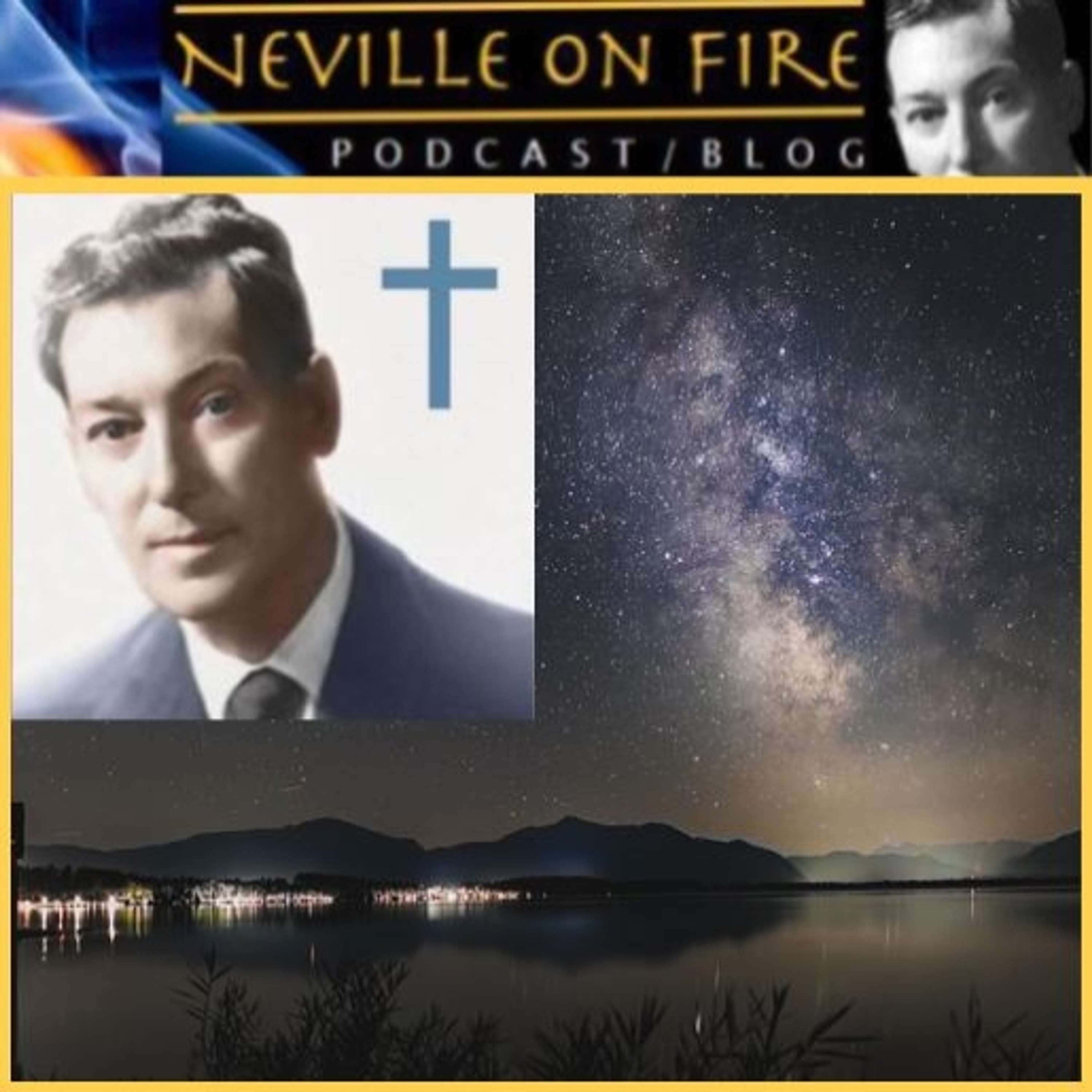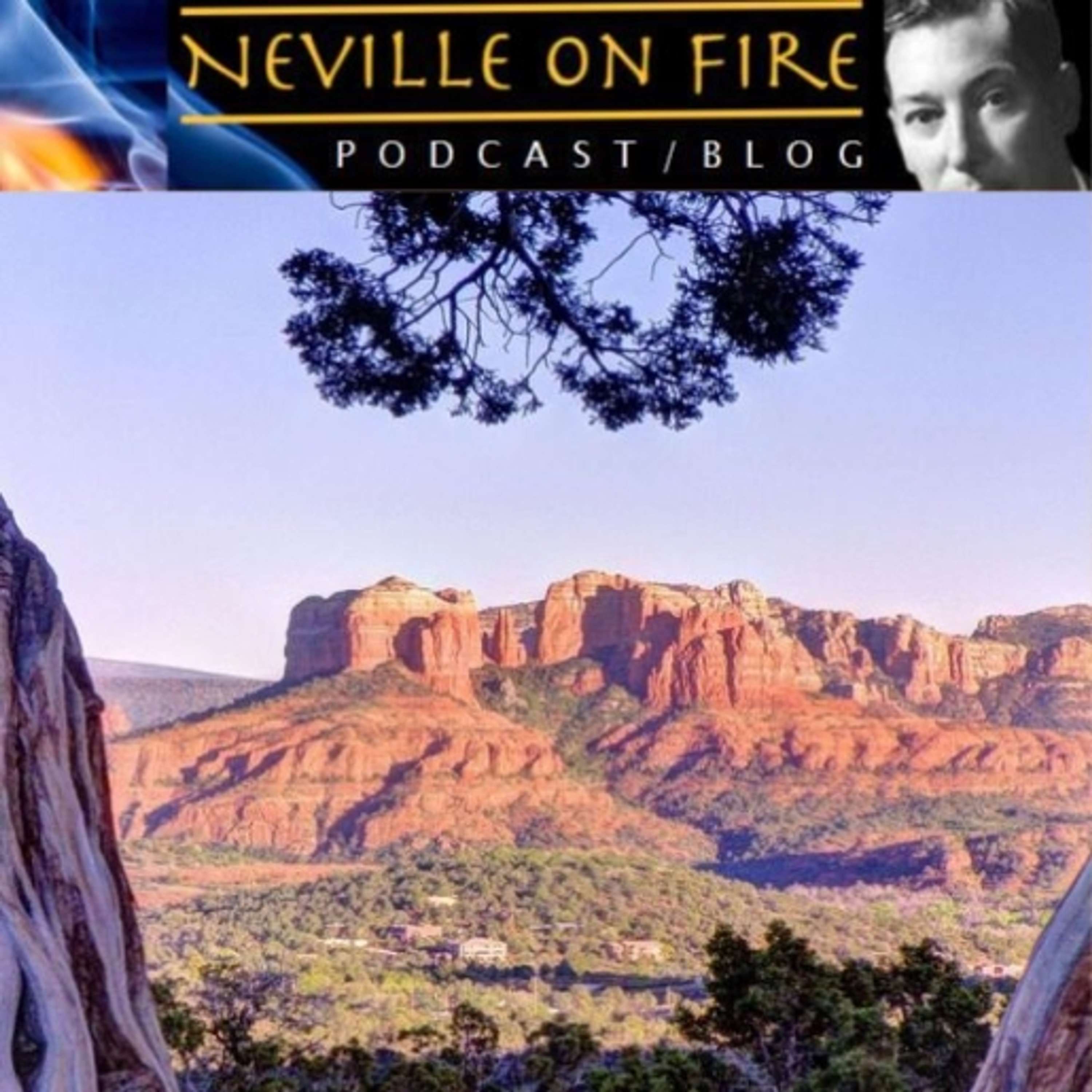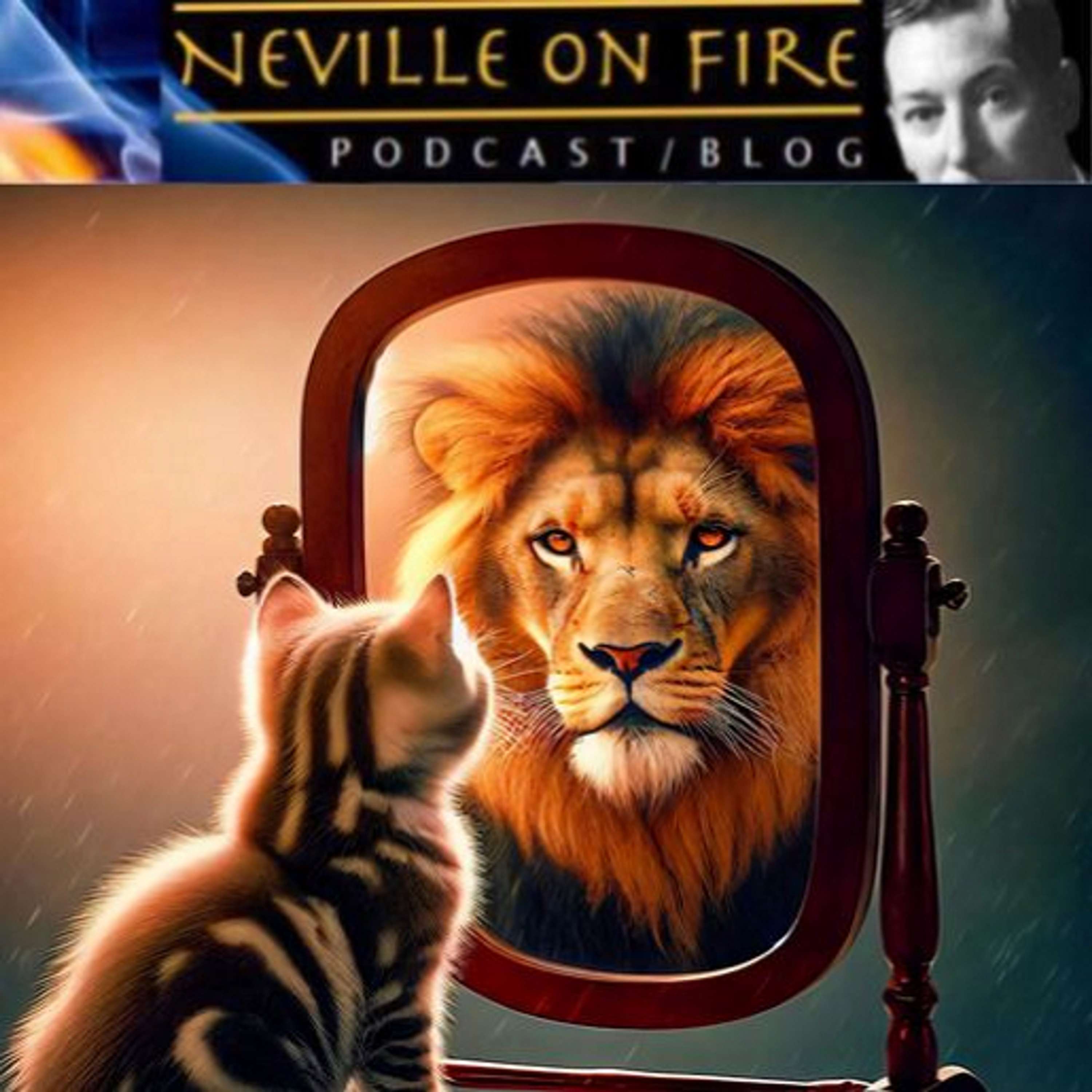Show Notes
EPISODE SUMMARY
A sketch of Neville’s worldview presented in a series of seeming contradictions.
1. Neville the heretic
2. The truth, hidden in a false wrapping
3. The paradox of the problem of evil
4. The paradoxical human condition
5. Comments on the paradox
6. Conclusions
RESOURCES
Michel de Molinos, The Spiritual Guide
One of the best known “quietists”
Nicoll, Maurice (1952) The New Man - An Interpretation of Some Parables and Miracles of Christ
British psychologist, exponent of C.G. Jung and Fourth Way; published interpretations of Scripture.
Jacobi, Jolande (1965) The Way of Individuation
Student of C.G. Jung gives a precis of his psychology.
Cremo, Michael A. (2003) Human Devolution: A Vedic Alternative to Darwin’s Theory
Discusses also his earlier work (co-authored) Forbidden Archeology
Ivananova, Silvie, newearth Youtube channel
https://www.youtube.com/watch?v=eVUIu90W_Xg
Alan Watts
The fundamental principle of Buddhism
1:18:15 “You are the total energy that constitutes the universe playing that it’s you. [...] The colossal reality, the energy that is everything -- that is a unitary energy, that is one, plays at being many.” Watts remarks that this is fundamental to Hinduism, Buddhism and Taoism. He could have added: Christianity!
1:48:30 “The world is not existing independently of those who witness it.”
1:03:10 “You have difficulty in conceiving this as a Westerner because we have all been brainwashed by several centuries of put-down theories of Man.”
3:16:13 “You can see at one level that the evil side of things is part of the total harmony... The joy of life is to be in the process of getting rid of it.”
Repeated
Ouspensky, P.D. (1949) In Search of the Miraculous
Account of study of the Fourth Way, brought to the West by G.I Gurdjiefff.
Show Transcript
[Edited for clarity]
This is E8, The Paradoxical Picture.
In this episode, I'll put together a picture of Neville's worldview, at least a rough sketch. To do that, I'll use a series of seeming contradictions.
1. Neville the heretic
...or if not a heretic, then perhaps blasphemous, or at the very least, unconventional. Neville said that the faith that people place in Holy relics... I remember when I visited France, there would be churches that boasted having, let's say, a piece of the finger of St. John or something like that... Well, [faith in] these Holy relics are in a sense equivalent to the faith, according to Neville, that people place in doctors and medicines, which is in turn equivalent to the faith that he himself used to place in astrological charts. So they're all effective -- as long as one is deeply convinced of their efficacy.
The point is that these are all intermediaries -- Holy relics, medicines, astrological charts, and then when it comes to Neville, even a Church and an historical Jesus -- they're all intermediaries. What is the point in believing some intermediary when it's unnecessary, when it could be taken from you, or even somehow lost? So for Neville's part, he said (here I’m paraphrasing) he would not deny to anyone the comforts that they find in Church going, or conventional beliefs, what you might call a sort of conventional Christianity. But at the same time, he would say that if he could deprive you of some false belief, then he should, because if it were truly rooted in you, it could not be taken from you. He said, don't buy your religion retail from some middleman. Buy it wholesale, go to the source.
But there's another important point about buying your religion retail, that is going through some middle man, that is, that an intermediary. [It] means that you perpetuate the idea that a separate or outside God is responsible, or other people are responsible, that he did it, she did it. And that means you are no longer responsible -- for what? Well, for the makeup of your own world. Whereas the total psychological reversal called for in Neville's teaching says that once awakened, you can't place blame anywhere. You can't place blame with another person. The seeming other, the entire world, is myself pushed out.
Neville had precursors or predecessors in the sense that there were others who sought to remove some sort of intermediary, particularly the intermediary of the Church. So you could say the Christian Mystics fit that description...the Gnostics, the Quietists. Have you ever looked into the Quietists? It's a pretty interesting sect... and Quakers and others. But Neville went a step further and removed the ultimate intermediary of a God separate from oneself. So this could be our first paradox, the fact that even among the heretics, Neville is the most radical, the most marginalized. But if he's correct, if a psychological reading is the right thing, then he's going to be one of the very few who have got it right.
[03:23]
2. The Truth hidden in a false wrapping
Neville took pains to explain the Eastern literary usage, that is, allegory, to embody psychological qualities in the form of human characters. This is what the Bible is all about. So the resulting message or interpretation is far removed from the frequent literal reading, the sentimental and moralistic reading. He rescues the parables too, from often an absurd surface meaning and reveals a significance that is vital and really inspiring -- not to just old people way back in the day -- but inspiring to the modern mind.
So the question arises, why was the truth of the matter not revealed in Scripture at the outset in bare simple terms? Neville answers -- there are several answers -- Neville says that the allegory of the East is misunderstood by the West, and vice versa. Maurice Nicoll (see the show notes for some references) says that an inner truth is preserved over time in the form of an outward story. He also says that a parable is a psychological instrument to allow a person to begin to think for himself or herself, but without coercion. Yet other sources explain that the origin -- the conscious origin -- of one religion or another becomes corrupted in transmission.
Consider as a rough outline, three possible fates of the initial impulse, the conscious revelation of Christianity.
The first stream of development would be among persons having a relatively outward view of spiritual matters. So they would not have understood or been even seeking the precepts of a consciously received religion. They would likely have misinterpreted and twisted the message. Now this even includes the sort of clergy who are really kind of the products of the conservative institution. (Neville and others tell of clergymen who are unable to answer penetrating questions about the meaning of certain parables). So they perpetuate a literal reading of the allegorical Bible. In the Church they keep a rather incurious sort of people in a state of passivity and contentment, with a sentimental and moral view of religion.
Okay, so at the risk of oversimplifying, I'll continue... You could say there might be a second stream those who did receive and understand the psychological import of the message, but they learned quickly that it was heresy, punishable by death, especially in the later years when the Church became organized. So if they were astute enough to avoid expressing it openly, then they preserved it within hidden schools and perpetuated it by underground transmission. Neville's teacher Abdullah might well have been the recipient of that sort of knowledge.
Then there is quite possibly a third category, and that is certain people, understanding the import of the teaching, thought that they should keep it to the knowledge to themselves, because it was so powerful, and preserve it in the higher echelons of their own secret societies -- but for the express purpose of controlling society at large.
They do this despite the law that Neville and others explain, that sending evil intentions against others simply rebounds to the sender, when the intended victim subconsciously does not accept the suggestion as true of himself. This would explain why institutions having a vested interest in ensuring that we continue to accept controlling narratives, continue also to somehow convince the members (their constituents, or their audience) of their own inferiority.
In those three streams, those three developments of an original message, we can see that there's a paradox. There's a core truth to the matter, a psychological truth. And yet in each case, it has to be hidden. It has to be covered up with some sort of a wrapper -- whether it's because people simply don't want to or can't understand; or they do understand, but it's not Orthodox and not allowed; or they do understand, and they want to appropriate it to themselves and control other people.
[07:34]
3. The paradox of the problem of evil.
Here we pick up on that last point that I was making about the third stream, the people who want to appropriate this knowledge for themselves, but turn it to dark purposes. The history of this last stream that I was talking about really deals with events in remote antiquity and extending into more recent history, right into contemporary times. So you can read about this stuff -- histories, confessions, whistleblower reports, and so on. They reveal that secret society members form a network, although admittedly it's not monolithic. But this network is typically loyal only to itself and to its own goals, which remains secret. And what they do is they manage to subvert and control major institutions, and so even the direction of society at large. Now individual members are inculcated into a system of values and behaviors. So it seems that in many cases, only after rising through many degrees of initiation and after being compromised by the power structure do they learn what it is that they've actually been serving. Maybe a bibliography of the most compelling evidence based and scholarly works exposing this side of history would be in order. But at least I did give a place to start in the show notes back in E7.
On the other hand, when researching this occult history, this hidden history, a morbid fascination seems to possess you. So why is that? It seems that something within us responds to the dark side. And I suppose that's why CG Jung, Gurdjieff and similar thinkers don't naively insist on trying to eradicate evil from the human psyche. Attempts to do so would likely border on some sort of an insanity. But instead, as we already discussed in previous episodes, what we want to do is encourage an acceptance within ourselves, bringing to light and consciously owning negative moods. And that leads to hopefully a sort of wholeness or balance. So that's on the personal plane.
But getting back to this question of society at large, should we eventually call a halt to being steeped in the research of Mystery Babylon, the secret societies, social engineering, subversion, and so on? That investigation undoubtedly sheds light on the nature of the domineering institutions that we're concerned about. But the trouble is that there's no end to it. We seem to be in sort of a double bind. On one hand, we want to be knowledgeable, we don't want to be deceived, we don't want to be naive. And yet, if you're immersed in the research on the dark side, you are likely perpetuating the negative side of creation by impressing it ever more intensely on your own subconscious.
If you're truly interested in a society that's free, thriving, prosperous, joyful, loving, artistic, and so on, well then to really follow Neville's advice, you have to focus your mental energies on the act of creation of such a thing. And quite honestly, that seems to be even more difficult than contemplating the ways of evil.
So, that's what we might call the paradox of this problem of evil. We want to be in the know, we want to be informed. And yet the more we investigate the dark side, the more we run the risk of actually perpetuating it.
So before leaving this topic, consider this passage from the book of James. Here's a quote. “What causes quarrels and what causes fights among you? Is it not this that your passions are at war within you?” It's pretty clearly a psychological piece of advice. And that view, of course, aligns with Neville’s.
For Neville, if you simply read the newspaper headlines unmindfully, without the disciplined denial that we talked about back in E5, well then, you're actually responsible for binding those occurrences in your world. You're creating it. Neville's answer is to deprive evil of conscious attention, and focus on the good.
[4. The Paradoxical Human Condition -- a series of contradictory aspects. (inadvertently edited out of the audio)]
[11:34]
Here's the contradiction within us expressed really in the broadest terms. On the surface, we are ego and false personality. We're pursuing illusory aims on a plane of existence, which we could just call ordinary life, which can't really be resolved in terms of itself. And this is characterized as a profound hypnotic sleep.
Now, the contradictory part is that awakening, or receiving the knowledge about the possibility of awakening, we are the creative power. We are God himself, not in a superficial way, but rather in the depths of our being. So God became man that we might awaken within ourselves as God. That's the essential contradiction.
Here's a contradiction that comes up often in discussion. We are fragmented and individualized on one hand, but on the other hand, all is one. There's only unity, there's only one consciousness, one God.
Here's a third contradiction. This whole experiment, we were subjected to despite ourselves. And yet somehow we undertook this strange experiment purposely for our own sake. We did it to put ourselves through the “furnaces of affliction”, and to experience the joys at the same time, in order to live a life of experience. So we were willing and yet unwilling.
Here's another contradiction, going back to the problem of evil. God created good and evil. The whole totality of creation is there. So if it were all good, then there would be no differentiation, right? There would be no contrast to give meaning to good, without evil. So that's on the one hand.
But on the other hand, consider this. Paul says in Romans (14:14): “I am convinced, being fully persuaded in the Lord Jesus, that nothing is unclean in itself. But if anyone regards something as unclean, then for that person it is unclean.” Okay, so it seems that the evil or the unclean is all a matter of personal perception. It's all a matter of what you believe.
Finally, in this list of contradictions, we have free will. And even so, we are admonished to choose life and to dwell on the things that are lovely and of good report. And yet here's the contradiction: The direct quote from Romans “God has imprisoned (other translations say ‘committed’ or ‘consigned’)... God has imprisoned everyone in disobedience.” In other words, you don't have a choice. You must disobey. You must go down the wrong road.
[14:06]
5. Comments on the paradox.
Well, if we're trying to look at this rationally, if that's possible, it seems that the omniscient being -- ourselves -- the omniscient being has created this remarkable set of circumstances as a challenge to itself. There's one contemplation of this state of affairs that I heard by the Buddhist Alan Watts, and he's the only one that I've heard who's actually kind of drawn out this whole idea and considered different aspects of it. He considers the strange balance of good and evil and human life, as a perennial state of affairs, as well as the idea of the physical body being some sort of an emanation -- which is much along the lines of what Neville describes. I'll put a link in the show notes to one of the lectures by Alan Watts...
Let's consider some other aspects of this paradoxical situation. As we ponder various aspects of this strange condition of existence, we could look at elements like time, space, and life itself. So I present the following comments just for the purpose of pondering and speculation.
First, with regard to time, author Michael Cremo -- he's an archaeologist -- published a book called Forbidden Archeology, where the origins of the human race are shown to be much older than permitted by orthodox science. Another interesting source along these lines is the YouTube channel newearth, where archaeological phenomena are examined from radically new perspectives. So the result of all this is that timelines and the broadly accepted versions of history are either disproven or seriously called into question.
My point in bringing your attention to that is to say that these sources at least give us permission to start considering the picture that is presented both by Neville and by Nicoll, which is that the whole vast project of human existence, according to both of these authors, is a living and complete entity. It's a living and complete whole. So history is not dead. History is actually alive, wherein events are fluid and actually changeable. So Neville calls the art of changing the past. He says this is possible, and he recommends it and gives instructions. He calls this changing of the past through conscious intent revision. So much for time. But what about space?
What can we say about the observed universe, and how can we reconcile that with our view of Neville's teaching? Neville answers this in an interesting way. He says that the human imagination is the only place large enough to contain the infinite universe. Well, my take on this is that, on the one hand, when we look out at the observed universe, the sort of thing that you see in Hubble Space Telescope pictures, and so on, we don't find that the observed universe is orderly or finite, or even intuitively comprehensible. It just seems to be random and chaotic. However, rather than seeing it just as an absurdity, when you consider Neville's worldview -- when we relate the observed universe to the human imagination -- then it sort of becomes clear: the universe is illustrating a vast limitless potential.
Well, let's consider one final point, and this does come up in discussion, and that is the possibility of other life forms. People talk about the possible existence of aliens, Giants in the land, following on certain archeological evidence which may or may not be credible, races of elves, fairies, and so on. Well, I haven't heard Neville make any pronouncements on these sorts of creatures, but I wonder, if he were around to respond, wouldn't he just say that the only way that we can know of and give reality to any of these is within our own minds, it's within our own psyche? The central message then being not to deny that such things that we can conceive of, but not to give the status of creator or independent existence to any external entity. There's only one creator. Everything is rooted in the psyche of Man (generic man -- man and woman).
[18:28]
6. Conclusions
a. My first conclusion is to try to reduce Neville's message to the simplest possible formulation. And I'm doing this to try to escape momentarily from all the theoretical or doctrinal argument or speculation that might just lead us astray.
Since time immemorial, people have sought the identity and the nature of two things, both the creative source and themselves. Now Neville is unique in that he proposes that these two are one and the same thing.
b. My second conclusion is that there's no value to this proposition whatever, unless we can use the time and energy that we have in this life, right now, to test the whole thing in conscious experience. And that leads me to my third conclusion.
c. The intended utility of this podcast series:
i) First of all, to list and discuss the elements that have to be brought into a personal discipline. That's, I think, the value in this podcast series. I'm talking about regular practice, the definition of aim, motivation, and the application of methods and techniques.
ii) The second part of the service or value of this podcast is to describe a worldview based on Neville's ideas, as we did today, even if it's partly speculative. This gives a foundation to the subconscious, that's its function. It gives the ideas a feeling of, hopefully, soundness and credibility, and forming an integral whole. That's important because that enables us to accept the ideas to a greater depth, instead of continually sort of objecting and resisting the ideas. So as a result of that, we're more likely to be open to the transforming influences that Neville's ideas could very well have.
iii) The third and final point is that there's a recurring theme in Nicoll's writings about people's state of consciousness. He says this is rarely called into question -- the level or quality of awareness. And this is the familiar idea that you can't solve a problem from the same state of consciousness that gave rise to the problem in the first place. So I'll leave you with a suggestion just to go within: go within, but don't get lost. Invoke your wordless, awareness, your self awareness, your self consciousness, and gain clarity.
Listen On
Also Listen
-

Who is Man? Neville’s Radical Answer
Book draft chapter 1. S1E01 revised, inviting your comments.https://nevilleonfir -

The Power of Noticing: How to Interrupt Mechanical Life
Conscious intervention is required for psychological growth. -

Let Go to Move Ahead: Neville and Sedona
First, review of first 15 episodes Season 2. Then explore incremental psychologi -

Conscious Self Persuasion
Science tries to define consciousness where it does not exist, and hypnosis whil


Comments & Upvotes